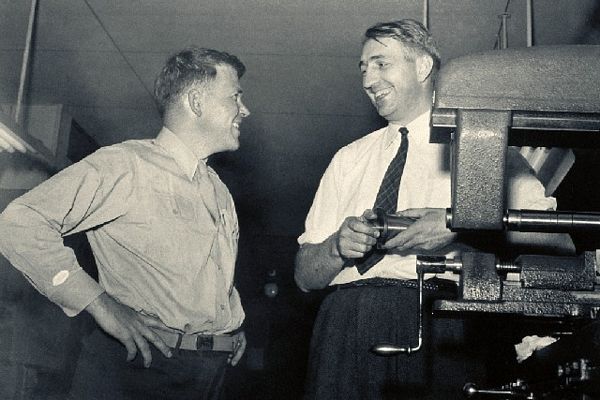
Bill Hewlett and Dave Packard, two graduates of electrical engineering from Stanford University, started Hewlett-Packard (HP) in Packard’s Palo Alto garage with an initial capital investment of US$538. Initially, the company was unfocused and worked on a wide range of electronic products for industry and agriculture. HP incorporated on August 18, 1947, and went public on November 6, 1957.
Bill Hewlett and Dave Packard made the HP Way official in the year 1957 when the company went public. With the company expanding in leaps and bounds, the founders recognized the need to enlist a set of company objectives to channel the efforts of divisional managers. In forming the HP Way, Hewlett and Packard had a broader foresight of bearing in mind that profit is an enabler of various other valuable objectives, including employees and corporate citizenship.
In the words of Bill Hewlett, the HP Way is “a core ideology … which includes a deep respect for the individual, a dedication to affordable quality and reliability, a commitment to community responsibility, and a view that the company exists to make technical contributions for the advancement and welfare of humanity.”
Bill Hewlett and Dave Packard’s legendary management style, which came to be known as the HP Way, has been the topic of many case studies by ivory-tower professionals, management theorists, academics, and Wall Street professionals. The tenets are as relevant today as they ever were.
.jpg) We have trust and respect for individuals. We approach each situation with the belief that people want to do a good job and will do so, given the proper tools and support. We attract highly capable, diverse, innovative people and recognize their efforts and contributions to the company. HP people contribute enthusiastically and share in the success that they make possible.
We have trust and respect for individuals. We approach each situation with the belief that people want to do a good job and will do so, given the proper tools and support. We attract highly capable, diverse, innovative people and recognize their efforts and contributions to the company. HP people contribute enthusiastically and share in the success that they make possible.- We focus on a high level of achievement and contribution. Our customers expect HP products and services to be of the highest quality and to provide lasting value. To achieve this, all HP people, especially managers, must be leaders who generate enthusiasm and respond with extra effort to meet customer needs. Techniques and management practices which are effective today may be outdated in the future. For us to remain at the forefront in all our activities, people should always be looking for new and better ways to do their work.
- We conduct our business with uncompromising integrity. We expect HP people to be open and honest in their dealings to earn the trust and loyalty of others. People at every level are expected to adhere to the highest standards of business ethics and must understand that anything less is unacceptable. As a practical matter, ethical conduct cannot be assured by written HP policies and codes; it must be an integral part of the organization, a deeply ingrained tradition that is passed from one generation of employees to another.
.jpg) We achieve our common objectives through teamwork. We recognize that it is only through effective cooperation within and among organisations that we can achieve our goals. Our commitment is to work as a worldwide team to fulfill the expectations of our customers, shareholders and others who depend upon us. The benefits and obligations of doing business are shared among all HP people.
We achieve our common objectives through teamwork. We recognize that it is only through effective cooperation within and among organisations that we can achieve our goals. Our commitment is to work as a worldwide team to fulfill the expectations of our customers, shareholders and others who depend upon us. The benefits and obligations of doing business are shared among all HP people.- We encourage flexibility and innovation. We create an inclusive work environment which supports the diversity of our people and stimulates innovation. We strive for overall objectives which are clearly stated and agreed upon, and allow people flexibility in working toward goals in ways that they help determine are best for the organization. HP people should personally accept responsibility and be encouraged to upgrade their skills and capabilities through ongoing training and development. This is especially important in a technical business where the rate of progress is rapid and where people are expected to adapt to change.
For Bill Hewlett and Dave Packard’s legendary management style and the history of Hewlett Packard, read ‘Bill & Dave: How Hewlett and Packard Built the World’s Greatest Company’ by Michael S. Malone and ‘The HP Way: How Bill Hewlett and I Built Our Company’ by David Packard.